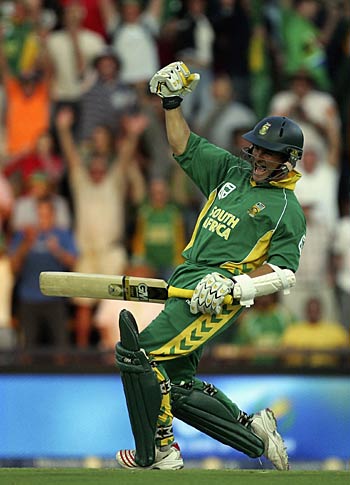Group Discussion
The group was the biggest I had this year. We were 12 on paper but one person didn't come, so in the end we were 11 around the table. The topic given to us was - "Freedom to choose is freedom to die". The discussion started with the obvious topic of euthanasia and after that people started to interpret the topic in total crazy manner. Bringing China-India, US-India, Rich-Poor and what not angles into discussion. It was peaceful on the whole, but some times few of the group members started to talk simultaneously. Once I tried to pacify them, but gave up soon. They asked me about it in my PI.
After the GD we were asked to summarize the discussion in a minute. My name came up after 8 others, so it was really tough to word it differently so that it doesn't look like I was just copying it. Overall, the GD went not too bad for me (and that was such a relief).
Personal Interview
In my panel there were three persons. All three of them looked like IIM professors to me, but I'm told the panel usually has one established alumni too. Anyway, they never bothered to introduce themselves.P1: Where do you work, Varun?
Me: {Company}, sir.
P1: Which city?
Me: Bangalore.
P1: You've given the mailing address for Jaipur.
Me: I'm shifting house in some time, that's why.
P1: What are you, single or married?
Me: Single, sir.
P1: Why there aren't any software firms in states like Rajasthan & Gujarat?
Me: {Concentration of quality technical institutes .. Bangalore had them .. Rajasthan is coming up ... Infrastructure is another concern}
P1: That is for Rajasthan, what about Gujarat?
Me: {Lack of good institutes plus Gujarat doesn't has a reputation of being a peaceful state with all riots happening in Ahmedabad}
P1: You are getting good salary here, why do you want to do an MBA?
Me: {Money nakko, value addition mangta hai}
(P3 said "value addition" to P1 and both sniggered)
P1: So what are your plans; to be an investment banker?
Me: {Start a company .. as I have education & experience in software}
P1: Indian companies are losing out on software as the operation costs are rising in India, so why start another software company?
Me: This is a big matter of concern for all software companies. I think Indian companies should start to look out for Indian customers too. With ever-bloating upward mobile middle class with ready access to the internet, the Indian market can get big.
P1: Last thing, why didn't the Birlas enter into software?
Me: They already have this huge empire, so probably they didn't find it necessary {silent question-mark ;-)}
P1: But then, Tata entered into software.
Me: I think Birlas missed the bus. With players like Infosys, TCS, Wipro already in the market, it would be really tough for them to cut it.
P1: They could've bought stakes in Infosys/Wipro.
Me: I don't know, sir.
P1: Coming from Rajasthan, don't you praise the Birlas?
Me: They have done really good job sir. Coming from such background and to make such an empire.
(I'm now handed over to P3. P2 comes back to his seat now.)
P3: You went to Kota for IIT coaching?
Me: Yes sir, I was there for two years. 11th & 12th class.
P2: Oh, the famous coaching.
Me: Rather infamous sir {smiles, smiles}
P3: So what do you think about these coaching institutes?
Me: They definitely introduce a bias towards those who can afford their coaching. But then even traditionally all the IITians come from middle-class & upper middle-class. So more or less, it’s the same. It’s like saying that since America can afford to train its athletes better, its unfair advantage to America.
P3: You’ve written that you are interested in photography. Your photos got published in DNA.
Me: DNA was working on an article on Jaipur. I took some photos when I was there last time. I had put them on my website. One of the DNA editors contacted me on email for those photos.
P3: They contacted you?
Me: Yes, sir.
P3: Do you have any photos to show?
Me: No sir. (Should’ve carried some colored printouts :-( )
P3: You also review movies for a website. Which was the last movie you reviewed?
Me: Rang De Basanti, sir. I got busy after that.
P3: Interesting movie. What did you say about that?
Me: While reviewing movies, I usually divide the movie into presentation & content. RDB has excellent presentation but I couldn’t agree with the ending. {Gun is not the solution .. ULFA, Kashmir blah blah..}
P3: If you were to direct the movie, what would’ve been the ending?
Me: We can draw a parallel with movies like Yuva & Sarfarosh, where the solution is sought while staying inside the system. You don’t need to pick up the gun {blah blah}
P3: But RDB was a hit, wasn’t it?
Me: That’s because it was an entertainer, well presented movie.
P3: But the content wasn’t good?
Me: I don’t think Indian audience goes to movie to learn from the movie, they just want to be entertained. We had an very impressive movie – Bawander – on the Bhanwari Devi Rape case. It was a very well made movie, but didn’t do well on the box-office.
P2: You are so passionate about this, I can see that. Why go for an MBA? I mean today you can make good name while working in whatever field you like. AR Rahman is almost as popular as Bill Gates.
Me: Sir, I feel the coming time belong to generalists & not specialists. While I am very passionate about films, I’m also passionate about photography, software and business. I can pursue all of them simultaneously. These will be different aspects of my personality. (Generalist-specialist comment was stuck into my mind for quite some time, glad that I finally used it somewhere ;-)
P2: What do you think about the GD?
Me: I think the main meaning behind the topic was about mercy killing and euthanasia, I think the groups got a little bit too wayward at times.
P2: No, no, you are a presentation & content guy. You are talking about just the content, how was the presentation?
Me: Every aspirant dreads a fish-market GD, this wasn’t a fish market GD. Quite easy-going as everyone got the chance to speak up and make their points.
P2: You tried to stop them, what was that about? You wanted to say something and then stopped.
Me: Sir, that time two of them were speaking at the same time, I thought about stopping them. But then I thought it won’t be appropriate for me to do so. So, I stopped.
I think that was all. They gave my academic certificates’ copies back, but asked me to get the experience letters photo-copied.
Overall, the interview was very easygoing. When I came out of the room, I was glad about it. But later on, clouds of doubt rolled back – percentiles aren’t exactly brilliant, grades aren’t good, etc. etc. So, I’ve stopped thinking about it. Since IIMC started their GD/PIs this week only, the results are expected to come out in the second half of April.
I’m glad that it’s finally over. Now that the ever-nagging thought at the back of my mind, that I should read this and read that for the interviews, is gone I can read and do whatever I want. It didn’t use to stop me even earlier, but the weight of guilt kept piling up. ;-)
Also read:
IIM Lucknow GD/PI
IIM Kozhikode GD/PI
IIM Indore GD/PI
 Confession time: I tried & tried again to write a review for the album, but I'm simply pathetic at this. Thanks to Google, I found one thoroughly professional review of this delightful album. I don't have much to add to that, so read the review & get the songs! You can enjoy the songs online, here.
Confession time: I tried & tried again to write a review for the album, but I'm simply pathetic at this. Thanks to Google, I found one thoroughly professional review of this delightful album. I don't have much to add to that, so read the review & get the songs! You can enjoy the songs online, here.











